Contents
- Unlocking the Secrets of Your Recurrent Dreams
- Understanding Recurrent Dreams
- Unveiling the Messages in Your Dreams
- Common Types of Recurrent Dreams
- Tools for Dream Analysis
- Understanding the Possible Meanings
- Interpreting Your Own Dreams
- Interpreting the Hidden Messages Within Your Dreams
- Conclusion
-
Frequently Asked Questions
- How often do recurrent dreams occur?
- Can recurrent dreams have different variations?
- Are recurrent dreams always meaningful?
- Can recurrent dreams be related to past traumas?
- Do recurrent dreams change over time?
- Can recurrent dreams be influenced by our daily lives?
- Can interpreting recurrent dreams help with personal growth?
- Are there any common symbols in recurrent dreams?
- Is it possible to control or change recurrent dreams?
- Should I consult a professional for help in interpreting my recurrent dreams?
- References
Unlocking the Secrets of Your Recurrent Dreams

Do you find yourself waking up in the middle of the night, drenched in sweat, with your heart pounding, only to realize that you’ve had the same dream again? Recurrent dreams can be both captivating and perplexing, leaving us wondering about their significance and the hidden messages they may hold. In this article, we’ll delve into the intriguing world of recurrent dreams and unravel the meaning behind them. Join us as we explore the symbolism, analyze the surreal elements, and examine the emotional patterns within your dreams, providing you with the tools and insights to interpret your own recurring dreams. Get ready to embark on a journey of self-discovery as we unlock the secrets that lie beneath the surface of your nightly visions.
Understanding Recurrent Dreams
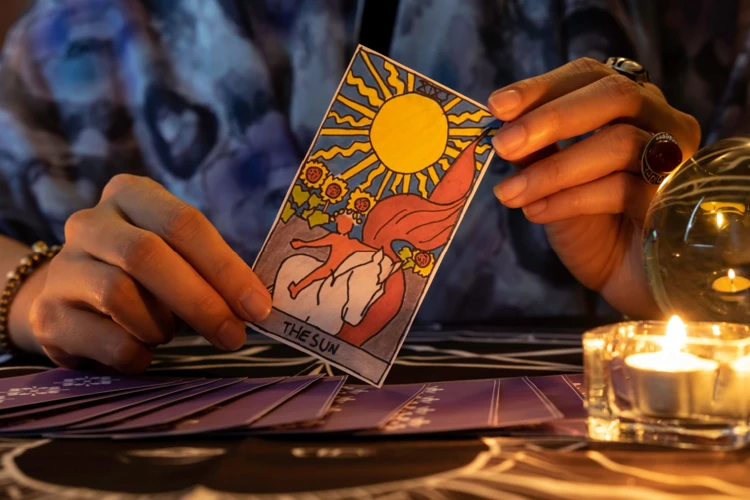
Recurrent dreams can be a perplexing phenomenon that leaves us eager to understand their deeper meaning. These recurring dreams may hold valuable insights into our subconscious mind and provide clues about unresolved emotions or experiences. By exploring the symbols and themes present in our dreams, we can gain a better understanding of their significance and uncover hidden messages. Whether it’s falling dreams, naked dreams, or being chased dreams, each recurring dream carries its unique symbolism and message. Take a deep dive into the surreal elements of your dreams and examine the emotional patterns they evoke. Understanding the importance of recurrent dreams will not only aid in personal growth and self-reflection but also help in deciphering the connection between our conscious and unconscious mind. To delve further into the subject, you may refer to our article on deciphering dream themes and significance.
What are Recurrent Dreams?
Recurrent dreams are a fascinating aspect of our dream experiences, characterized by their repetitive nature. These are the dreams that tend to recur over a period of time, often leaving us with a sense of familiarity and lingering questions. Unlike ordinary dreams that come and go, recurrent dreams persist and reoccur with similar themes, symbols, or scenarios. Each time we have a recurrent dream, it may vary slightly in details or context, but the underlying essence remains consistent. It is as if our subconscious mind is trying to communicate a specific message or draw our attention to an unresolved issue. These dreams can be vivid and emotionally charged, making them impossible to ignore. Exploring the meaning behind recurrent dreams can provide profound insights into our inner world, aiding in personal growth and self-discovery. To further understand the symbolism and significance of dreams, you may refer to our article on symbolism in dreams.
The Importance of Recurring Dreams
Recurring dreams hold a significant importance in our lives, acting as a window into our subconscious mind. These dreams have a way of capturing our attention and persistently revisiting us night after night. While they may seem puzzling at first, acknowledging their importance can provide invaluable insights into our inner thoughts and emotions. One of the key reasons recurring dreams are essential is that they often highlight unresolved issues or emotions we may be suppressing or unaware of in our waking life. By bringing these issues to the forefront of our consciousness, recurring dreams provide us with an opportunity for self-reflection and personal growth. Additionally, these dreams can serve as a catalyst for exploring and addressing deep-rooted fears, anxieties, and desires that may be holding us back in our waking life. Understanding the significance of recurring dreams enables us to unravel the hidden messages they carry and can help guide us on a path of self-discovery and healing. To further explore common dream themes and their possible interpretations, you may refer to our article on unlocking common dream themes.
Unveiling the Messages in Your Dreams
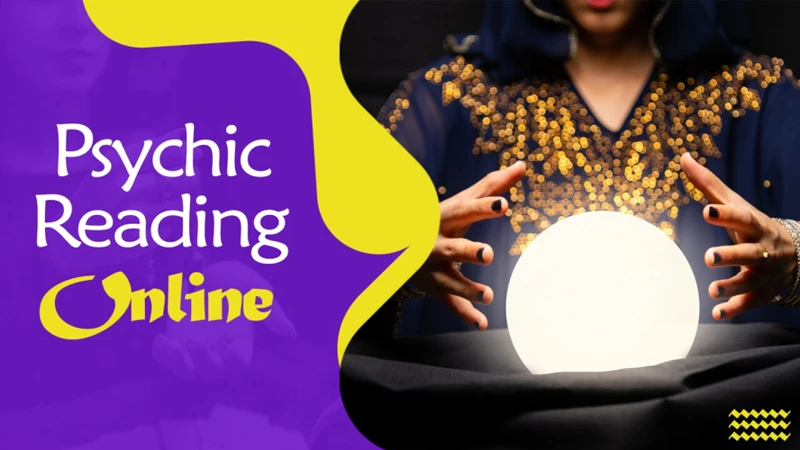
Unveiling the messages hidden within our dreams can feel like untangling a web of mystery and symbolism. To begin deciphering the meaning behind our dreams, it’s essential to analyze the symbols and themes present. Symbols can vary widely and may have personal significance unique to each individual. By keeping a dream journal and noting recurring symbols, we can start to piece together their significance and the messages they may hold. Additionally, exploring the surreal elements of our dreams can offer valuable insights into our subconscious mind. These elements, such as bizarre landscapes or fantastical creatures, often represent suppressed emotions or desires. They serve as windows into our deepest thoughts and provoke exploration of our hidden desires and fears. Lastly, examining the emotional patterns within our dreams provides further clues to their meaning. Paying attention to the intensity of emotions experienced during a dream and identifying patterns of recurring emotions can shed light on unresolved issues or unresolved emotions we may need to address. Unveiling the messages within our dreams is a journey that requires patience, self-reflection, and an open mind.
Analyzing Symbols and Themes
Analyzing symbols and themes is a key aspect of unraveling the hidden messages within recurrent dreams. In these dreams, various symbols and themes often emerge, providing important clues about our subconscious thoughts and emotions. To begin the process of analysis, it’s crucial to keep a dream journal and record the symbols and themes present in each dream. Symbols can be personal or universal, and their interpretation may vary from person to person. It’s essential to pay attention to the context in which these symbols appear and the emotions they evoke. For example, a snake might symbolize transformation and rebirth for one person, while to another, it may represent fear or deception. By identifying recurring symbols and themes, patterns can be established, offering deeper insights into the subconscious mind. This analysis can be supported by consulting symbolism dictionaries and references, which provide additional interpretations of common symbols. Thus, by meticulously analyzing symbols and themes, we can unlock the hidden messages encoded within our recurrent dreams, gaining a better understanding of ourselves and our innermost desires and fears.
Interpreting Surreal Elements
Interpreting the surreal elements present in our recurrent dreams is a crucial step in unraveling their hidden messages. These surreal elements can often seem bizarre or nonsensical, but they hold significant meaning when it comes to understanding the deeper layers of our subconscious mind. Pay attention to the peculiarities within your dreams, such as talking animals, distorted landscapes, or impossible scenarios. These surreal elements serve as symbolic representations of our emotions, desires, and fears. For example, encountering a talking animal may symbolize our inner wisdom or intuition trying to communicate with us. Similarly, a distorted landscape may indicate a sense of confusion or instability in our waking life. By analyzing and reflecting upon these surreal elements, we can gain valuable insights and shed light on aspects of ourselves that may be hidden or repressed. Remember, no surreal detail is too insignificant, as each holds a piece of the puzzle to understanding our dreams and ourselves on a deeper level.
Examining Emotional Patterns
When unraveling the hidden messages within recurrent dreams, it’s crucial to examine the emotional patterns that arise during these dream experiences. Our emotions play a significant role in understanding the deeper meanings behind our dreams. By identifying and analyzing these emotional patterns, we can gain valuable insights into our subconscious mind and the unresolved emotions we may be carrying.
One way to examine emotional patterns is to keep a dream journal or record. By writing down your dreams immediately upon waking, you can capture the raw emotions and vivid details before they fade away. Pay attention to the predominant emotions you felt during the dream and note any shifts in emotion throughout the dream narrative.
Another approach is to create an emotional timeline, where you map out the emotions you experienced at different points during the dream. This can help you identify any recurring emotional themes or patterns that may be present. For example, you might notice a pattern of fear and anxiety in dreams where you are being chased, indicating unresolved feelings of vulnerability or a need for self-protection.
Additionally, consider the contrast between the emotional tone of the dream and your waking life emotions. Are your dreams reflecting emotions that you typically suppress or ignore in your daily life? Exploring these disparities can provide valuable insights into areas of emotional growth or unresolved issues.
During this examination process, it is essential to approach your emotions with curiosity and without judgment. Each emotion has its significance and can offer valuable clues about your inner world. By uncovering the emotional patterns in your recurrent dreams, you can gain a deeper understanding of your subconscious mind and embark on a journey of healing and self-discovery.
Common Types of Recurrent Dreams
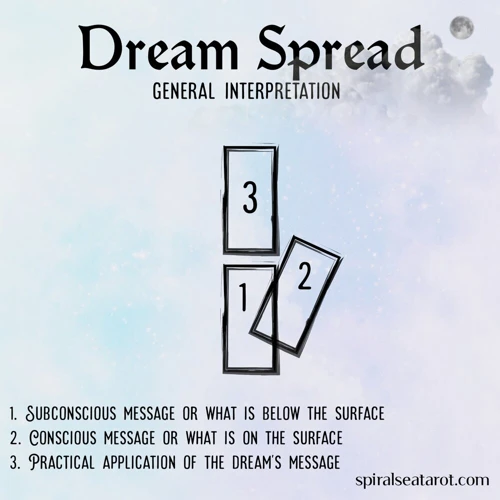
Recurrent dreams come in various forms, each with its own unique symbolism and significance. Among the most common types of recurring dreams are falling dreams, where you find yourself plummeting through the air, creating a sense of fear and vulnerability. Naked or exposed dreams leave you feeling exposed and vulnerable, often representing feelings of insecurity or a fear of judgment. Being chased or attacked dreams can evoke a sense of panic and helplessness, symbolizing unresolved conflicts or situations that we feel pursued by. Each of these recurrent dreams carries a deeper message and understanding their possible meanings can provide valuable insights into our subconscious mind. Explore the hidden messages within these common dream themes, and unlock the secrets they hold for personal growth and self-discovery.
Falling or Flying Dreams
Falling or flying dreams are among the most common types of recurrent dreams that people experience. In these dreams, we either find ourselves soaring through the sky, effortlessly gliding above the ground, or plummeting down from great heights, experiencing a sense of weightlessness and fear. The symbolism behind these dreams is often linked to feelings of control or lack thereof in our waking lives. Flying dreams can represent a sense of freedom, liberation, and the ability to overcome obstacles. They may signify a desire for independence, empowerment, or a need to escape from the constraints of daily life. On the other hand, falling dreams often reflect a loss of control, insecurity, or fear of failure. They can be associated with feelings of vulnerability, anxiety, or a lack of stability. These dreams may suggest the need to regain control or to confront and overcome our fears. While the specific interpretation may vary depending on the individual, analyzing the emotions and context surrounding falling or flying dreams can offer valuable insights into our subconscious thoughts and desires.
Naked or Exposed Dreams
In the realm of recurrent dreams, one of the most common and vivid experiences is the phenomenon of naked or exposed dreams. These dreams often leave individuals feeling vulnerable, embarrassed, or exposed in some way. While they can be unsettling, they hold significant meaning and may provide valuable insights into one’s innermost insecurities and fears.
In these dreams, the dreamer finds themselves in various situations, such as being naked in public, unable to find clothes, or suddenly realizing their lack of clothing in a social setting. The feeling of embarrassment and vulnerability experienced in these dreams is a reflection of the fear of being judged or criticized by others.
Naked or exposed dreams often stem from a deep-rooted fear of being exposed for who we truly are, stripped of our defenses and masks. These dreams can indicate a desire for greater authenticity and acceptance from others. They may also symbolize a need to embrace and love oneself, regardless of others’ opinions.
To better understand the messages concealed within naked or exposed dreams, it is helpful to explore the context and emotions surrounding these dreams. Keeping a record of these dreams in a dream journal can aid in identifying patterns and recurring symbols. By examining the emotions evoked during these dreams, individuals can gain insight into their fears, self-image, and insecurities.
While naked or exposed dreams can be uncomfortable, they provide an opportunity for personal growth and self-acceptance. Embracing vulnerability and recognizing the underlying messages of these dreams can help individuals develop a stronger sense of self and cultivate greater self-assurance in their waking life. It is important to remember that these dreams are not meant to be a source of shame or embarrassment but rather an invitation to explore and embrace our authentic selves.
In the article “Symbolism in Dreams“, we delve deeper into the meanings behind various dream symbols, including those related to naked or exposed dreams. Understanding the symbolism in our dreams can provide further insights into our subconscious thoughts and emotions.Being Chased or Attacked Dreams
Being chased or attacked dreams are among the most common types of recurrent dreams that people experience. These dreams can leave you feeling panicked, anxious, and on edge, long after you wake up. The theme of being chased or attacked in dreams often represents feelings of fear, vulnerability, or a sense of being pursued by a real-life problem or situation that may be causing stress or anxiety in your waking life.
In these dreams, the pursuer or attacker can take on various forms, such as an unknown person, an animal, a monster, or even an abstract entity. The identity of the chaser or attacker is not as important as understanding the underlying emotions and fears associated with the dream. It is essential to pay attention to the details of the dream, including the environment, your actions, and the outcome.
Consider the context of the dream. Are you able to escape, or do you constantly find yourself trapped or cornered? Are you running in familiar or unfamiliar surroundings? The chase itself can indicate a desire to escape or avoid a specific person, situation, or responsibility in your waking life. It may be a reflection of feeling overwhelmed and unable to confront or resolve an issue.
Being attacked in a dream can symbolize feelings of powerlessness, vulnerability, or aggression from others. It may also represent your own inner conflicts, where you feel attacked by your own thoughts, insecurities, or self-criticism. Take note of any emotions you experience during the dream, as they can provide valuable insights into the underlying meaning and potential triggers.
To better understand the messages hidden within these dreams, it can be helpful to keep a dream journal and record the details of each dream in which you are being chased or attacked. Look for patterns or recurring elements across multiple dreams, as these can provide clues to the root cause or recurring issues in your life. Consulting with a dream interpreter or using symbolism dictionaries and references can also provide additional guidance in uncovering the deeper meaning behind these dreams.
Remember, the interpretation of being chased or attacked dreams is highly personal, and only you can truly unlock the significance they hold for your own life. By exploring the emotions, symbols, and patterns involved in these dreams, you can gain valuable insights into unresolved fears, challenges, or conflicts and take steps towards addressing them in your waking life.
Tools for Dream Analysis
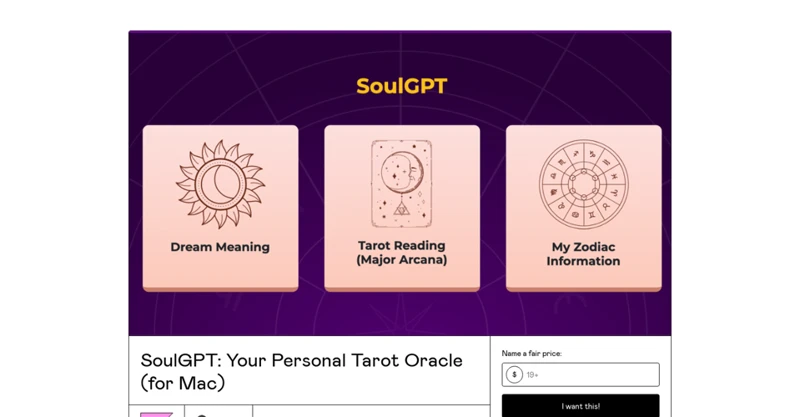
When it comes to unraveling the hidden messages within our dreams, having the right tools at our disposal can greatly enhance our understanding. One essential tool is keeping a dream journal or recording, where you can document the details of your dreams as soon as you wake up. This practice helps in capturing the nuances and symbolism that might fade from memory as the day progresses. Another valuable resource is symbolism dictionaries and references, which provide interpretations for common dream symbols. These references can guide you in decoding the meaning behind the objects, people, and scenarios that appear in your dreams. Additionally, for those seeking expert guidance, consulting with a dream interpreter or psychic can provide valuable insights and a fresh perspective that may uncover hidden layers of meaning. By utilizing these tools in tandem, you can embark on a detailed exploration of your dreams, uncovering their underlying messages and gaining valuable insights into your subconscious mind.
Dream Journals and Recording
Dream journals and recording play a crucial role in unraveling the mysteries of recurring dreams. Keeping a dream journal is a powerful way to capture the details of your dreams as soon as you wake up. The act of writing them down not only helps in remembering the dream more vividly but also allows for later analysis and interpretation. When recording your dreams, be sure to include specific symbols, themes, and emotions that stood out. Additionally, note any recurring elements that you have witnessed in multiple dreams. With time, patterns may emerge, giving you valuable insights into the hidden messages within your dreams. By consistently maintaining a dream journal and recording your dreams, you create a bridge between your conscious and subconscious mind, enabling a deeper exploration of their meanings. Remember to keep your dream journal by your bedside, ready to capture the essence of your dreams as soon as you wake up.
Symbolism Dictionaries and References
Symbolism dictionaries and references serve as invaluable resources when it comes to unraveling the hidden meanings behind the symbols in your recurrent dreams. These tools provide comprehensive lists of symbols and their associated interpretations, giving you a wide range of possibilities to explore. With a symbolism dictionary, you can look up specific symbols that appear in your dreams and gain insights into their potential significance. These dictionaries often include cultural and historical references, archetypal symbols, and common interpretations based on psychological and spiritual perspectives. By using these references, you can expand your knowledge and understanding of symbols, allowing you to dig deeper into the layers of your dream symbolism. Additionally, these resources can help you identify recurring symbols and patterns, which might provide valuable clues about recurring themes in your dreams. Access to an extensive symbolism dictionary or reference book can greatly enhance your ability to interpret your own dreams and unlock the messages hidden within them. Consider keeping a symbolism dictionary by your side as you explore the world of your dreams for a richer and more nuanced interpretation.
Consulting with a Dream Interpreter
When it comes to unraveling the hidden messages in your recurrent dreams, sometimes it can be beneficial to seek guidance from a professional dream interpreter. These individuals have a deep understanding of dream symbolism and can offer valuable insights into the meaning behind your dreams. Here are a few reasons why consulting with a dream interpreter may be helpful:
- Expertise and Knowledge: Dream interpreters possess a wealth of knowledge and experience in analyzing dreams. They are well-versed in the symbolism and imagery that appear in dreams and can provide you with a comprehensive interpretation.
- Unbiased Perspective: Consulting with a dream interpreter allows you to gain an unbiased perspective on your dreams. Sometimes, we may be too emotionally invested or close to the subject matter to fully interpret our dreams objectively. A dream interpreter can provide a fresh, outside viewpoint.
- Insight into Subconscious Motivations: Dream interpreters can help you identify hidden patterns and themes in your dreams that may reveal subconscious motivations or desires. By uncovering these deeper layers of meaning, you can gain a better understanding of yourself and your psyche.
- Validation and Confirmation: Sometimes, having a dream interpreter confirm or validate your own interpretations can provide a sense of reassurance. It can help you trust your own intuition and make connections that you may have missed.
Consulting with a dream interpreter can be done through in-person sessions, phone consultations, or even online platforms. Before booking a session, it’s essential to research and find a reputable and experienced interpreter who aligns with your beliefs and values. Remember that dream interpretation is both an art and a science, so finding the right interpreter who resonates with you is crucial.
Understanding the Possible Meanings

Understanding the possible meanings behind recurrent dreams is like unraveling the threads of a complex tapestry. These dreams often hold valuable insights into our personal growth, unresolved issues, and subconscious messages. They serve as mirrors reflecting our innermost thoughts, emotions, and desires. By examining the themes and symbols within our dreams, we can gain a deeper understanding of ourselves and uncover hidden truths. Recurrent dreams may be a call for self-reflection, urging us to delve into our past experiences and explore our unresolved emotional wounds. They may also serve as a pathway to intuitive guidance, offering us insights into our future direction. As we explore the potential meanings behind our recurring dreams, we embark on a journey of self-discovery, where we can tap into our inner wisdom and unlock the transformative power of our subconscious mind.
Personal Growth and Self-Reflection
One of the key aspects of recurrent dreams is their potential to contribute to personal growth and self-reflection. These dreams often serve as a mirror that reflects our innermost thoughts, emotions, and unresolved conflicts. By exploring the recurring themes, symbols, and emotions present in these dreams, we can gain valuable insights into our subconscious mind, allowing us to better understand ourselves on a deeper level. The repetitive nature of these dreams forces us to confront recurring patterns or issues that may be holding us back in our waking lives. Through self-reflection and analysis, we can uncover hidden aspects of our psyche, enabling personal growth and the opportunity to make positive changes in our lives. Whether it’s addressing fears, working through past traumas, or identifying our true desires and aspirations, recurrent dreams can act as a guiding compass on our journey towards self-discovery. Embracing these dreams with an open mind and a willingness to explore their messages can lead to profound personal growth and transformation.
Unresolved Issues and Emotional Healing
Unresolved issues and emotional healing are common themes that often emerge in recurrent dreams. Our dreams act as a reflection of our inner world, bringing to the surface unresolved conflicts, past traumas, and unaddressed emotions. These dreams serve as a gentle reminder from our subconscious mind that there are aspects of our lives that need attention and resolution. They provide an opportunity for us to confront these unresolved issues in a safe and symbolic way. Within the realm of our dreams, we can explore our fears, confront our past, and seek healing and closure. It is important to pay close attention to the emotions evoked during these dreams, as they hold valuable insights into the intensity and nature of our unresolved issues. By acknowledging and addressing these emotional wounds, we can take steps towards emotional healing and personal growth. It may be helpful to make a list of recurring symbols, themes, and emotions present in your dreams related to unresolved issues. This can aid in identifying patterns and providing a starting point for the healing process. Remember, the journey towards emotional healing is a gradual one, but our recurrent dreams can serve as guides along the way.
Subconscious Messages and Intuition
The realm of recurrent dreams is often associated with subconscious messages and the power of intuition. These dreams have a way of tapping into the depths of our unconscious mind, revealing insights and guidance that may otherwise remain hidden during our waking hours. Subconscious messages often manifest in our dreams through symbols, metaphors, and abstract scenarios. These symbolic representations carry profound meaning that can provide us with valuable information about our lives, relationships, and even future events. Paying close attention to these subconscious messages can lead to a deeper understanding of ourselves and the world around us. Recurrent dreams can serve as a doorway to our intuition, offering glimpses into our inner wisdom and guiding us towards making better decisions in our waking lives. Trusting our intuition, as revealed through our dreams, can assist in navigating through life’s challenges and seizing opportunities that come our way. By interpreting the subconscious messages and tapping into our intuition, we can unlock a wealth of knowledge and insight that can profoundly impact our lives.
Interpreting Your Own Dreams
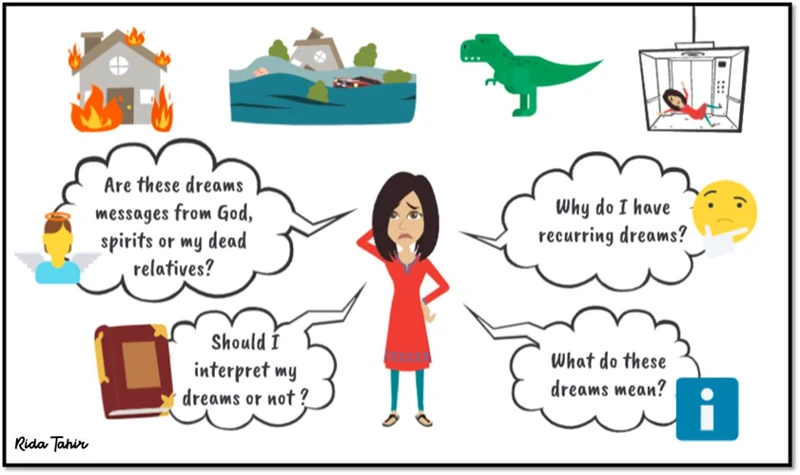
Unlocking the mysteries of your own dreams can be an exhilarating and transformative experience. By keeping a dream diary, you can capture the intricate details of each dream, enabling you to identify recurring symbols and patterns. These symbols hold significant meaning and can act as a guide to understanding the messages that your subconscious is trying to convey. Exploring your emotional responses while dreaming can also provide valuable insights into unresolved issues or desires that your conscious mind may not fully recognize. Delving into the depths of your dreams requires self-reflection and an open mind, allowing you to uncover valuable information about your fears, desires, and aspirations. By interpreting your own dreams, you are embarking on a journey of self-discovery and personal growth, gaining a deeper understanding of your subconscious mind. So grab a pen, open your mind, and start exploring the enigmatic realm of your dreams.
Keeping a Dream Diary
Keeping a dream diary is an invaluable tool in unraveling the hidden messages within your recurrent dreams. By recording your dreams as soon as you wake up, you capture the intricate details and emotions that may otherwise fade from memory. To start, keep a notebook or journal by your bed along with a pen or pencil. As soon as you wake up, take a moment to reflect on your dream and jot down any vivid images, symbols, or themes that stood out. Write in the present tense to capture the immediacy of the dream experience. Include as many details as possible, such as colors, sounds, and even the feelings you experienced during the dream. It’s essential not to censor or analyze your dreams at this stage; instead, focus on capturing them as they are. Over time, you’ll begin to identify patterns and recurring symbols in your dreams, helping you gain deeper insights. Consider organizing your dream diary using categories or tags, such as people, places, or emotions, to easily find connections between different dreams. Remember, the more consistently you keep your dream diary, the more comprehensive and revealing your dream analysis will become. Keeping a dream diary allows you to observe your dreams with a fresh perspective and aids in the interpretation of your recurrent dreams.
Identifying Recurring Symbols and Patterns
One of the key steps in interpreting your recurrent dreams is identifying the recurring symbols and patterns that appear throughout your dreamscapes. These symbols can hold significant meaning and offer valuable insights into your subconscious mind. To start, keep a dream journal or record your dreams using a voice recorder to capture the details as soon as you wake up. As you review your dreams over time, look for recurring symbols such as animals, objects, or specific locations that appear consistently. Take note of any patterns, whether it’s recurring themes like water or bridges, or recurring actions like running or falling. Create a visual representation of these symbols and patterns using an html table or an html list to help you visually analyze and compare them. By consciously identifying and exploring these recurring symbols and patterns, you can begin to unravel the deeper meaning they hold within your dreams.
Exploring Your Emotional Responses
When it comes to unraveling the hidden messages in your recurrent dreams, exploring your emotional responses is a crucial step. Your dreams are not just a series of images and events; they are also an emotional experience. By paying attention to the emotions that arise during and after your dreams, you can gain valuable insights into their meaning.
To explore your emotional responses, start by keeping a dream diary. After waking up from a recurring dream, take a moment to reflect on the emotions you felt during the dream. Were you scared, anxious, excited, or sad? Note down these emotions in your dream diary, along with any specific details about the dream itself.
Next, look for patterns or similarities in your emotional responses across multiple recurrent dreams. Do you tend to feel a sense of unease in different dream scenarios? Or do you frequently experience joy and happiness? These patterns can provide clues about the underlying themes or issues your subconscious is trying to communicate.
Additionally, consider how your emotions in the dream relate to your waking life. Are there any parallels between the emotions you felt in the dream and your current experiences or relationships? Your recurrent dreams may be reflecting unresolved emotions or conflicts that you are encountering in your daily life.
As you explore your emotional responses, remember that dreams are highly personal and subjective. What might evoke fear in one person could elicit excitement in another. Trust your own emotions and intuition as you delve deeper into the meaning of your dreams.
Exploring your emotional responses is essential when deciphering the hidden messages in your recurrent dreams. Keep a dream diary, identify emotional patterns, and reflect on how your dream emotions relate to your waking life. By paying attention to your emotional experiences, you can gain a deeper understanding of the messages your dreams are trying to convey.
Conclusion
As we reach the end of our journey into unraveling the hidden messages in your recurrent dreams, we have discovered the intricate world of dreams and their profound impact on our subconscious mind. Recurrent dreams are not just a random assortment of images; they hold significant meaning and serve as a bridge between our conscious and unconscious selves. By analyzing symbols, themes, and surreal elements, we gain insights into our emotions, fears, and unresolved issues. Through dream analysis techniques such as keeping a dream journal, identifying recurring symbols, and exploring our emotional responses, we become empowered to interpret our own dreams and uncover their personal significance. It is important to remember that uncovering the hidden messages of our recurrent dreams is a personal journey, unique to each individual. No dream interpretation is set in stone, and it is crucial to trust your intuition and inner wisdom as you explore the depths of your nightly visions. Harnessing the power of your recurrent dreams can lead to personal growth, emotional healing, and a deeper understanding of yourself. So, embrace the enigmatic world of dreams and embark on a path of self-discovery as you unravel the hidden messages in your own recurrent dreams.
Frequently Asked Questions
How often do recurrent dreams occur?
The frequency of recurrent dreams can vary from person to person. Some individuals may experience recurrent dreams multiple times a week, while others may only have them occasionally.
Can recurrent dreams have different variations?
Yes, recurrent dreams can have different variations. While the overall theme or message may remain consistent, the specific details and scenarios within the dream can vary from one occurrence to another.
Are recurrent dreams always meaningful?
Recurrent dreams often have significance and can provide valuable insights. However, not all recurring dreams may hold deep meaning. Some may simply be a result of our subconscious mind processing daily events or thoughts.
Absolutely. Recurrent dreams can sometimes be linked to past traumas or unresolved emotional experiences. They may serve as a way for our mind to process and heal from these events.
Do recurrent dreams change over time?
Yes, recurrent dreams can change over time. As we grow, evolve, and gain new perspectives, the symbolism and messages within our dreams may shift and take on new meanings.
Can recurrent dreams be influenced by our daily lives?
Our daily lives and experiences can indeed influence the content of our recurring dreams. Stressful situations, unresolved conflicts, or significant life events may manifest in our dreams as recurring themes or symbols.
Can interpreting recurrent dreams help with personal growth?
Yes, interpreting recurrent dreams can be a powerful tool for personal growth and self-reflection. By uncovering the hidden messages within our dreams, we can gain insights into our subconscious mind and address unresolved issues or emotions.
Are there any common symbols in recurrent dreams?
Yes, certain symbols often appear in recurrent dreams. These symbols can vary from person to person, but some common examples include falling, flying, being chased, or being naked. Examining these symbols can provide valuable clues about the underlying meaning of the dreams.
Is it possible to control or change recurrent dreams?
While it may not be possible to directly control or change recurrent dreams, we can influence them indirectly. By addressing the underlying emotions or unresolved issues in our waking life, we may experience a shift or resolution in our recurring dreams.
Should I consult a professional for help in interpreting my recurrent dreams?
If you find it challenging to interpret your recurrent dreams on your own, consulting a professional, such as a dream interpreter or therapist, can be beneficial. They can provide additional insights and guidance to help you unravel the hidden messages within your dreams.







